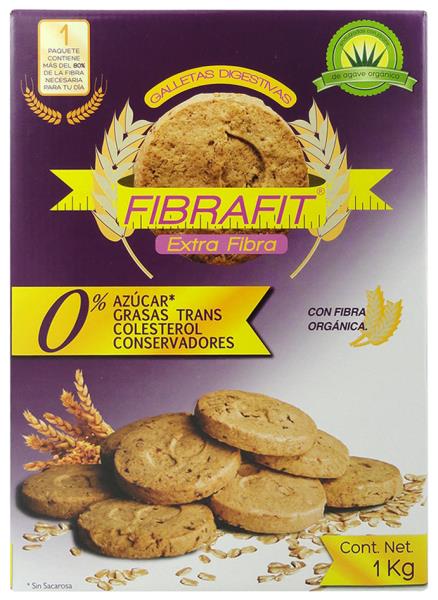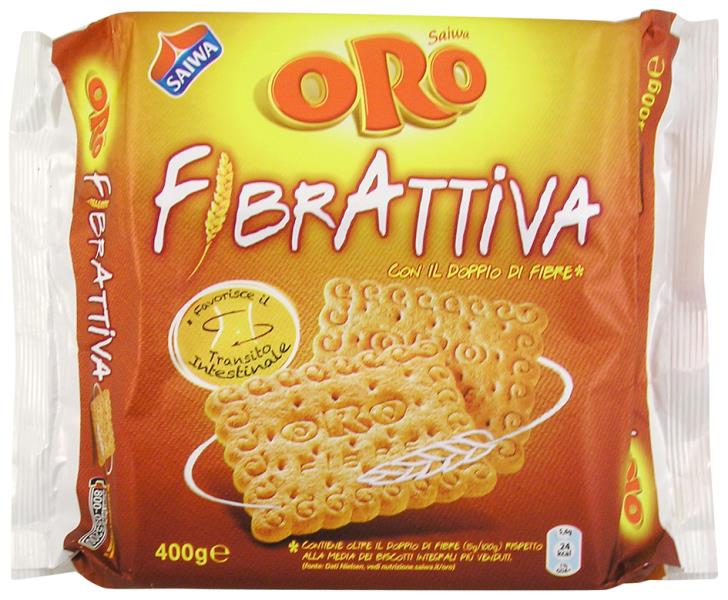News
White Bread and Breakfast Biscuits Fuel Fibre Focus
10 Nov 2014Awareness of the health benefits of fibre in terms of digestion, cholesterol reduction and diabetes prevention is rising, but it is an increasingly complicated area with the traditional associations of fibre with wholegrains, oats and fruit and vegetables now running alongside growing use and awareness of newer sources such as prebiotics, resistant starch, beta glucans […]

Awareness of the health benefits of fibre in terms of digestion, cholesterol reduction and diabetes prevention is rising, but it is an increasingly complicated area with the traditional associations of fibre with wholegrains, oats and fruit and vegetables now running alongside growing use and awareness of newer sources such as prebiotics, resistant starch, beta glucans and so on. The rising number of ingredients now classified as dietary fibre offers options for use in many different types of products with a range of benefits.
Bakery products are, perhaps not surprisingly, the leading user of fibre-related claims in the food and drinks industry, primarily ‘high in fibre’ or ‘source of fibre,’ but also including ‘added fibre’.
According to Innova Market Insights data, bakery products accounted for over one-fifth of global food and drinks launches using this type of claim in the 12 months to the end of September 2014, equivalent to just under 6% of bakery launches as a whole. In addition, a similar number of products used wholegrain claims, although there is some overlap evident, with the two types of claim combined featuring in 9% of global bakery introductions, rising to 14% in the US.
Within the bakery market, biscuits accounted for over half of introductions using fibre-related claims (excluding wholegrains), ahead of bread with just under one-third. In terms of significance to overall launch activity, however, bread leads with products featuring fibre claims accounting for 10% of the total, compared with less than 6.5% in biscuits.
Key areas of interest in the bread market have been in high-fibre white breads and in developing higher-fibre and wholegrain options in the sandwich alternatives market, which has seen the growing popularity of thinner bread rolls and flatbreads with names such as Sandwich Thins and Sandwich Rounds, offering a lighter option for fillings.
In the biscuits market, probably the key area of activity in high-fibre products in recent years has been in breakfast biscuits, virtually all of which are promoted as high in fibre and/or wholegrains and many of which have variants such as fruit and fibre in their ranges. While biscuit consumption at breakfast time is relatively commonplace in some parts of the world, initiatives led by Mondelez and its Belvita brand have targeted expanding the concept into new countries. This started in the UK with the 2010 launch of Belvita, which created a new breakfast biscuits sub-category that now features a raft of brands from cereal companies, biscuit companies and bakery companies, as well as retailer own brands, and heralded a welter of activity in other countries, including Germany, the US and Australia, as well as a revamp of existing markets, such as France and Spain.
The other area of significant activity in bread and biscuits in particular has been in the growing use of ancient grains, with a focus on their nutritional content, including their high-fibre properties.
The bakery industry is focusing on fibre content as one of a number of product benefits to drive sales in a relatively mature and increasingly concentrated market. This has been led by the bread category, with the US at the forefront of development, although it is also apparent across most countries where bread is a staple part of the diet. The rest of the bakery market has also started to focus more on fibre content and wholegrains, although the more impulse and treat nature of many of the products, particularly cakes and sweet biscuits, can make it of less significance in those markets overall.
Related news

Digital platform can help optimise the protein quality of plant-based meals
29 Dec 2025
Researchers at Wageningen University have developed a metric to assess – and optimise – the protein quality of plant-based meals.
Read more
Debate over ban on ‘meaty’ names for plant-based products reaches stalemate
26 Dec 2025
The debate over a ban on plant-based products using “meaty” terms has reached a stalemate, leaving manufacturers in limbo and still facing overhauls to their marketing and packaging.
Read more
Our most-read articles of 2025
23 Dec 2025
From trade tariffs to heavy metals in protein, we look back at some of the industry’s highlights of 2025 and round up our most-read stories of the year.
Read more
Bigging up bean-based products and consumption in Britain
19 Dec 2025
Non-profit organisation the Food Foundation has launched a campaign, “Bang in Some Beans”, designed to increase UK consumers’ legume consumption.
Read more
Pioneers of circular plastic packaging push for new policies
18 Dec 2025
Some of the world’s largest food and drink companies have grown frustrated at investing in circular packaging systems, as the majority “wait on the sidelines”.
Read more
Which sustainability-related labels are consumers willing to pay a premium for?
10 Dec 2025
Products with animal welfare and geographic origin labels elicit a higher willingness to pay a premium than those with carbon-related labels, research suggests.
Read more
Sorghum emerges as better-for-you hero ingredient
9 Dec 2025
With the launch of Novak Djokovic’s sorghum-based brand, the grain’s popularity in the better-for-you snacking sphere is on the rise, thanks to its nutritional and sensory properties.
Read more
Innovation promise in 'maturing' plant-based dairy alternatives market
8 Dec 2025
Plant-based dairy is a maturing market that still faces significant hurdles around taste, functionality, nutrition, and price, but industry is innovating fast, according to experts speaking at Fi Europe.
Read more
Celebrating the winners of the Fi Europe Innovation Awards 2025
3 Dec 2025
Food industry stakeholders celebrated as the winners of the Fi Europe Innovation Awards were announced at a ceremony in Paris.
Read more
Yuka’s food scanning app helps consumers make healthier choices
2 Dec 2025
Global food scanning app Yuka helps consumers understand the content of their shopping baskets and shapes producers’ reformulation plans.
Read more

